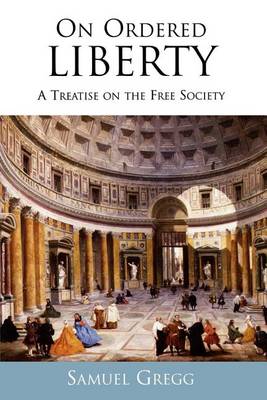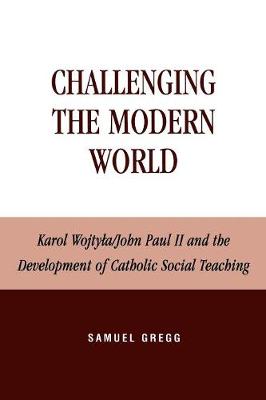Religion, Politics, and Society in the New Millennium
2 total works
Perhaps no issue is more divisive among philosophers, jurists and theologians than the nature of human liberty. Liberty is central to the claims of the Christian Gospel, the Glorious Revolution of 1688 and the American Revolution. But discussions about the nature of freedom have been characterized by profound disagreement and unsettling questions. What does it mean to be free? Is freedom worth more than mens' lives? Why should man be free? What, if any, legitmate responsibilities accompany freedom? These subjects are that the heart of Samuel Gregg's new book On Ordered Liberty. Beginning with the insights of Alexis de Tocqueville and some natural law theorists, Gregg suggests that something which he terms 'integral law' must be distinguished from most contemporary visions of freedom. He argues that this new arrangement requires a complete repudiation of utilitarian ideas on the grounds that they are incompatable with human nature. He also recommends a new and more rigorous focus on the basic but often neglected-question: what is man? On Ordered Liberty goes beyond the liberal and conservative divide, asking its readers to think about the proper ends of human choice and actions in a free society.
Samuel Gregg provides an insightful, cogent, and thorough analysis of the issues surrounding developments in Catholic social teaching during the pontificate of John Paul II. He compares the treatment in John Paul's social encyclicals of three topics-industrial relations, capitalism, and the relations between developed and developing countries-with the handling of these matters in the social teachings of the Second Vatican Council and Paul VI. Through the application of a comparative exegetical approach to the relevant texts, it becomes apparent that John Paul's development of the teaching derives from several sources. Within this analysis, Gregg considers a more specific and less widely examined issue: the extent to which the development in Catholic social thought has been influenced by the writings of Karol Wojtyla before he became pope in 1978. In addition to revealing an openness to certain modern philosophical insights and expressing a range of views about the modern world, these writings elaborate a distinctive anthropology of man as the conscious subject of moral acts.

